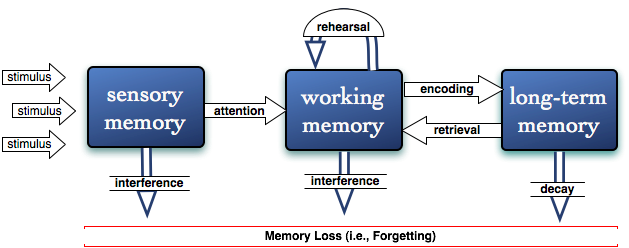Szymon's Zettelkasten
Powered by 🌱Roam GardenP: Learning is like working out
Keywords:: PermanentNote
Reference:: [[R: [Blink] Limitless by Jim Kwik]] [[R: [Blink] Learn Like a Pro by Barbara Oakley and Olav Schewe]] [[R: [Blink] Learn Better by Ulrich Boser]] PC: Huberman Lab | X | Episode 6
You can for sure remember when after a good night's sleep you could more easily recall the words in a foreign language you were struggling to learn the day before, or you could play the music piece with much more ease than the day before when you were trying to drill it. In other words, after a session of learning and a good night's sleep, you knew more than the day before—you've learned.
It's magical, isn't it? But how does it happen?
Effective learning moves the new information from the short-term memory to the long-term memory.

Learning is similar to working out. You combine periods of work (like doing push ups or reading a book) with periods of rest (like sleeping). The difference is that learning takes part in the abstract realm of concepts, while building muscles happens in the physical world. During workouts you push and lift things; during learning you engage and incorporate ideas. In both situations, however, your goal is to apply enough stimuli to change the current structure of either muscle or neurons.
During learning, these stimuli—in a form of new information—creates novel connections between your neurons. In the beginning, they're very small, weak, and fragile. However, every time you use this new knowledge (and follow it with rest), they strengthen (being moved from working memory to the long-term memory). If you don’t work upon that new knowledge, however, it slowly but surely withers away, like a path in the forest that disappears when people stop traveling on it. Repeat those cycles multiple times and you end up with bigger muscle or a "bigger brain."
Just now in Green Caffee Nero a guy asked for the largest black coffee powered with 2 additional espressos XD
Knowing that in order to learn you have to alternate between sessions of work and rest. But how can you make learning most effective?
For the work session, in short, to learn smartly, you need to use methods that work in accordance with how your brain naturally learns, not against it. More info here: P: Learning facts; learning concepts
In terms of rest, you need quality rest because this is when the consolidation happens. This is when those newly induced changes get fixed in you brain. You need short-term rest and quality long-term rest. More info here: TK P: High quality rest is imperative to learning .
Relevant notes (PN: )/questions (Q:):
P: Errors are fundamental to learning: errors trigger neuroplasticity, which lets you learn.
Btw. I need to research how this relates to short-term and long-term memory. If you first learn something are the concepts in short-term or long-term memory? When do concepts jump into longterm. Read these articles:

Memory consolidation is the process where our brains convert short-term memories into long-term ones. Short-term memory tends to be quite limited in terms of duration and capacity. The human brain can only store short-term memories for about 30 seconds, so if you are ever going to remember anything, important information has to be moved into long-term memory.
https://www.scientificamerican.com/article/how-do-short-term-memories-become-l/:~:text=A%20short%2Dterm%20memory's%20conversion,our%20memory%2C%20is%20called%20consolidation.
The cellular and molecular portions of memory consolidation typically take place within the first minutes or hours of learning and result in changes to neurons (nerve cells) or sets of neurons. Systems-level consolidation, involving the reorganization of brain networks that handle the processing of individual memories, can then happen on a much slower time frame of days or even years.
Good memory—i.e., the ability to remember and retrieve relevant things—makes you a better thinker for at least two reasons. Firstly, it aids understanding because you have access to more concepts, which widens your context, in result making you more objective, rational, and less prone to biases. Secondly, it aids creativity because, again, you can access more ideas, which enables you to create more potential combinations. Q: How to learn shit
this also explains P: The more you know, the quicker you learn
System 2: it draws from memory